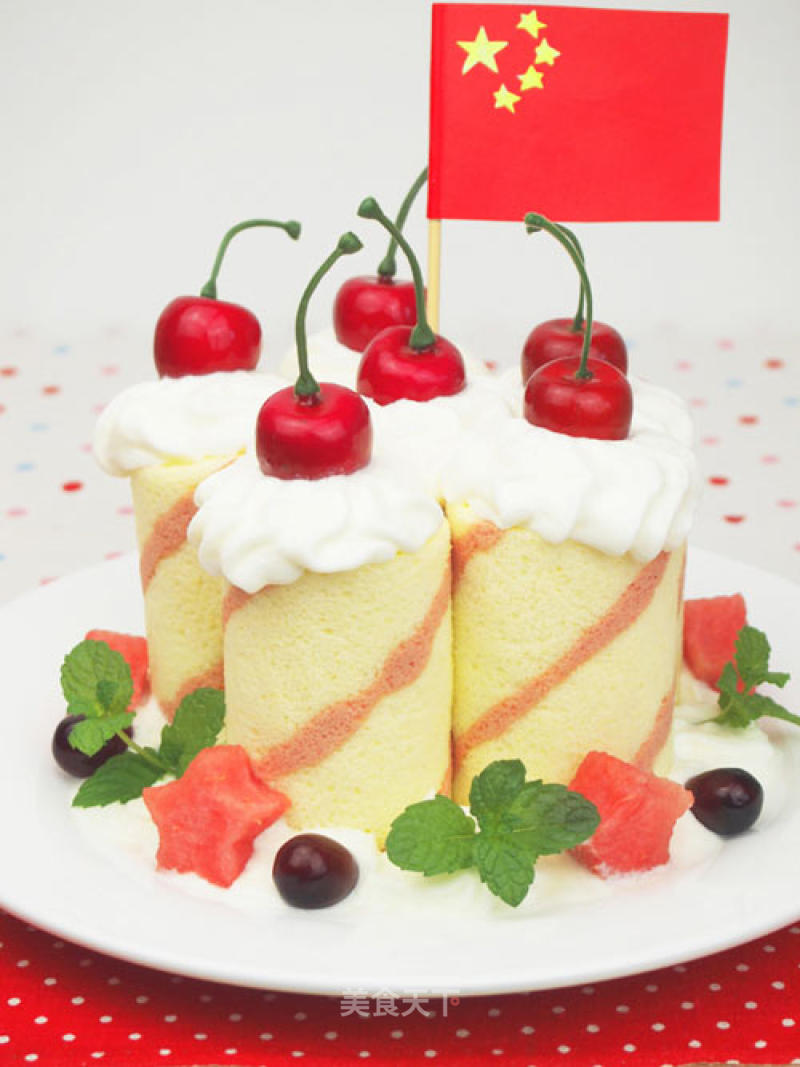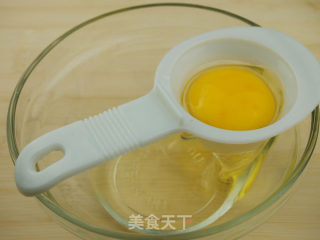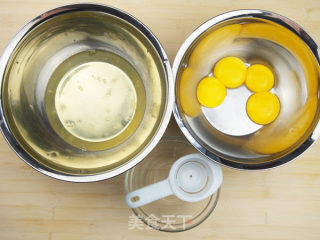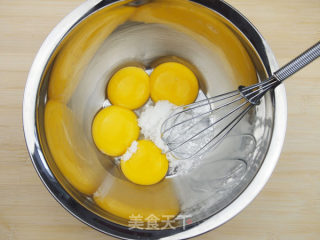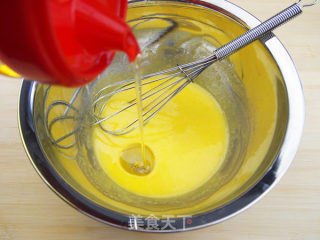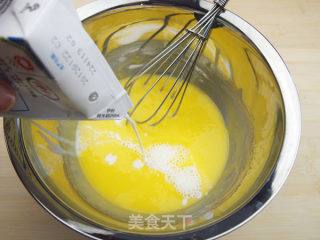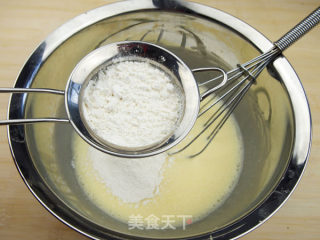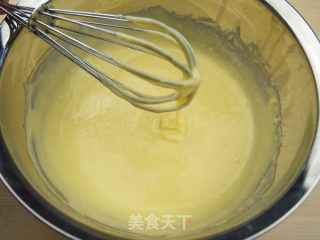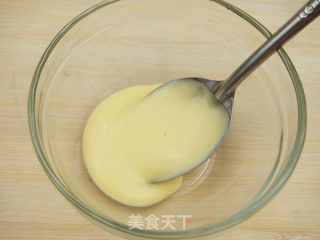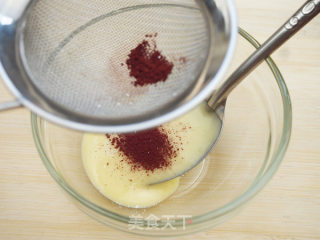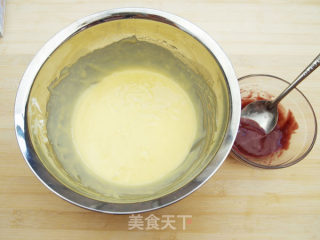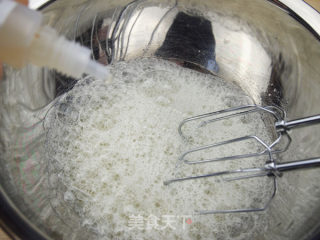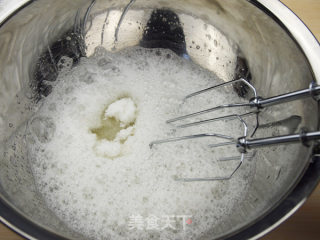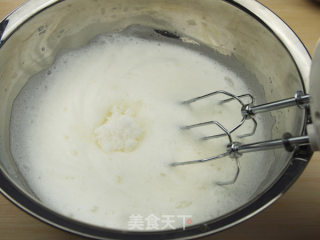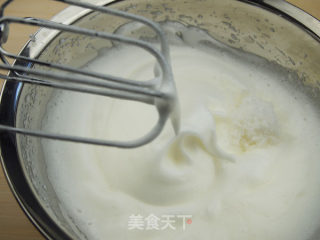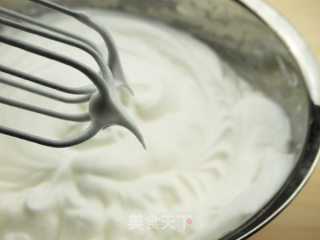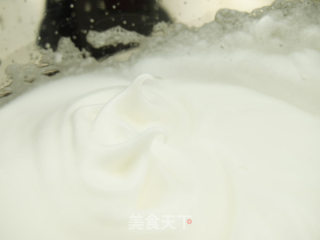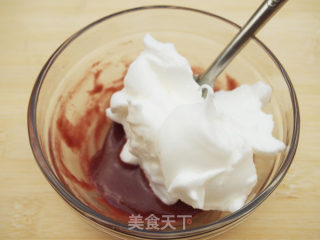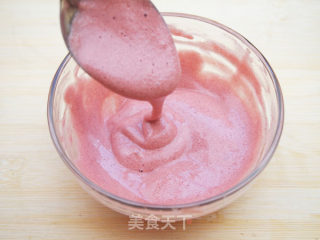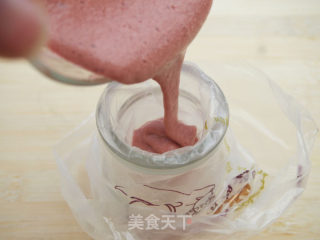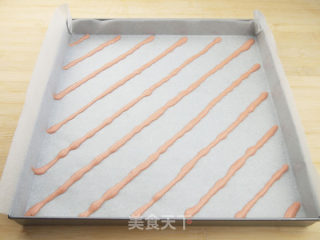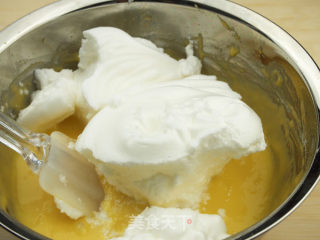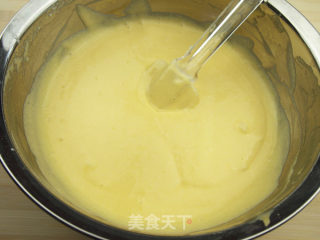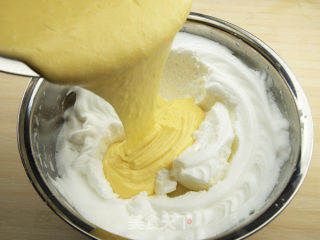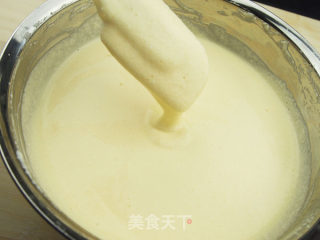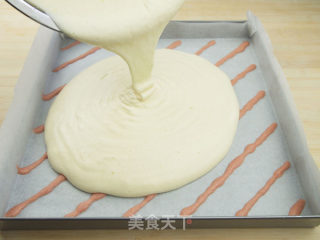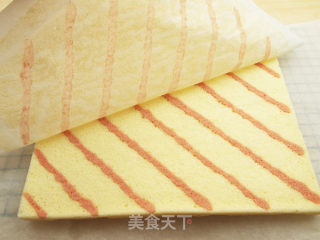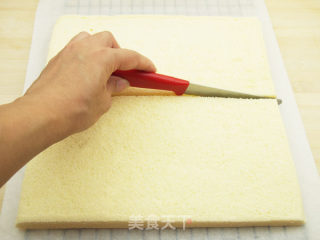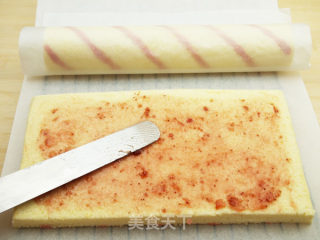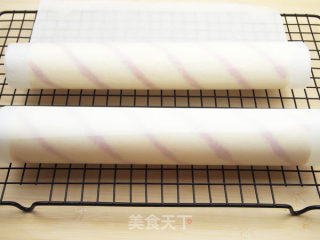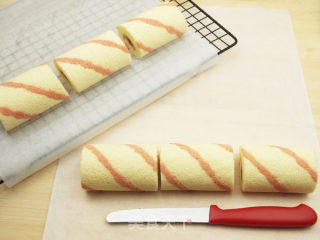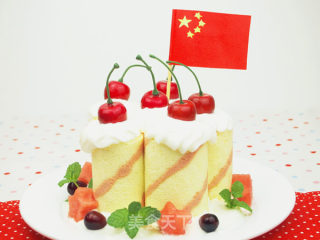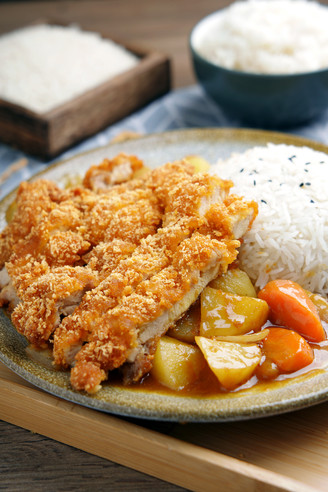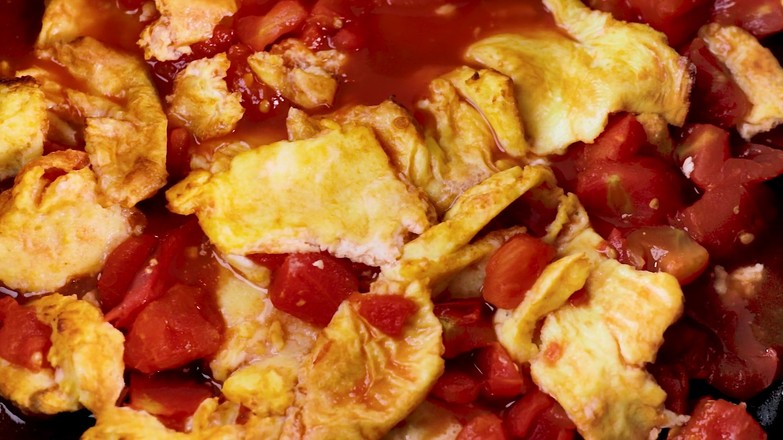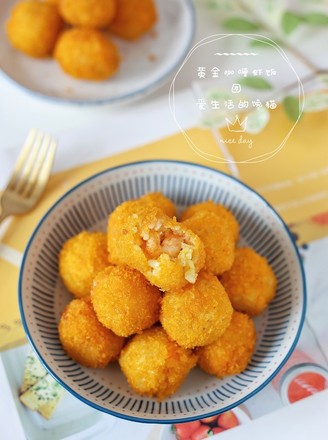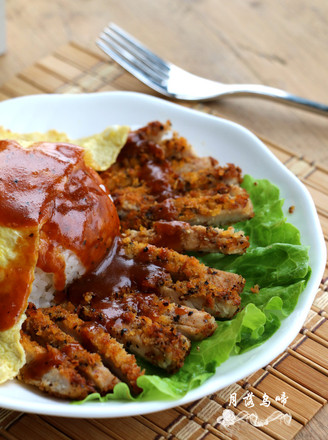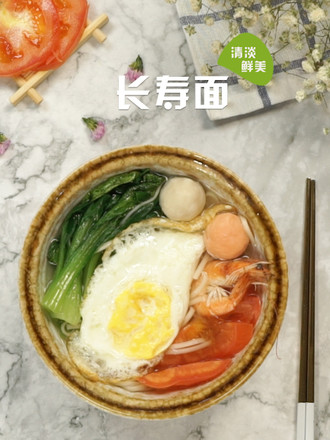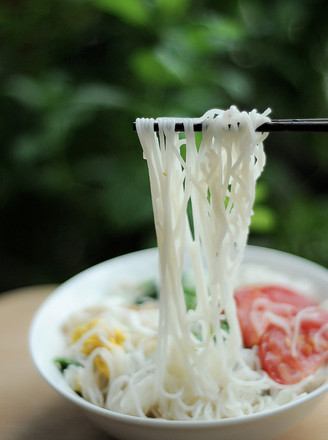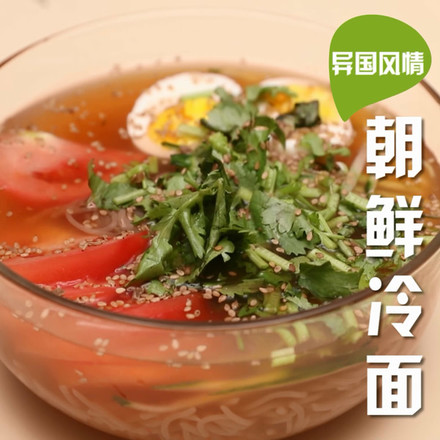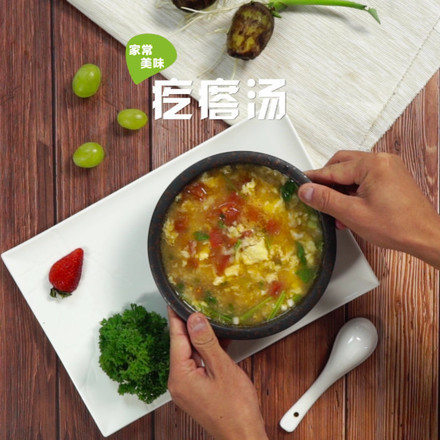Deduct Blessings with Cake Rolls: Come On, China!
1.
Separate the egg whites and egg yolks with an egg separator (Picture 1). Be careful not to let the egg whites get a trace of the yolk when separating eggs.
2.
Pour the egg whites and egg yolks into the egg-beating basin (Picture 2). The egg-beating basin must be free of water and oil. The pot for egg whites should be slightly larger. This time the protein basin is 20cm stainless steel deepened basin, and the egg yolk basin is 18cm.
3.
Put 1 gram of salt in the egg yolk bowl (Picture 3). Salt can make the sweetness of sugar less greasy. Then add 10 grams of caster sugar. Whisk evenly with a manual whisk.
4.
Add 50 grams of salad oil in three separate additions, and use a manual whisk to beat evenly each time (Picture 4).
5.
Pour 65 grams of pure milk into the egg yolk bowl (Picture 5), and beat until the oil and water are combined.
6.
Sift 80 grams of low flour into the egg yolk bowl (Picture 6).
7.
Stir until there is no particles in the paste (Picture 7).
8.
Spoon 20 grams of egg yolk paste in a small bowl (Picture 8).
9.
Sift 1/8 teaspoon of red yeast rice powder into a small bowl (Picture 9), cut and mix with a spoon.
10.
In this way, we get two different colored egg yolk pastes (Figure 10), and put the two egg yolk pastes aside for later use.
11.
Use an electric whisk to break up the egg whites and add 5 drops of lemon juice (Picture 11).
12.
When it is whipped until it looks like a fish-eye bubble as shown in (Picture 12), add one third (17 g) of 50 g of caster sugar.
13.
Beat until the egg whites begin to thicken, double the volume, and form a fine foam as shown in (Picture 13), then add one third of the fine sugar (17 g).
14.
Continue to beat until the egg whites are thicker and the surface becomes grainy, and when the egg white peaks on the whisk are drooping (Picture 14), add the remaining fine sugar (16 g).
15.
Continue whipping, and the egg white peaks on the whisk are long and not upright (Figure 15), indicating that it has reached the level of wet foaming, that is, the level of nine distribution. To make chiffon cake rolls, just beat the egg whites to this level.
16.
Although the protein has lines at this time, it feels lighter and softer. The protein in the basin is curved and pointed (Figure 16).
17.
Take about twice the amount of red yeast rice egg yolk paste in a small bowl (Picture 17).
18.
Stir and chop with a spoon until the egg whites and red yeast rice yolk paste are completely fused (Picture 18). The mixed batter is relatively thick, uniform and light red.
19.
Take a small piping bag and put it in a wide-mouth glass bottle, with the part above the mouth of the bottle turned out. Pour the red yeast cake batter into the piping bag (Picture 19).
20.
Tie a knot on the open end of the piping bag, and cut a small opening on the thin end of the piping bag with scissors. Spread greased paper on the baking tray, and draw a thin line on the greased paper while holding the piping bag (Picture 21). Put it in a preheated oven at 180℃, bake for one minute, and set the shape.
21.
While setting the shape, hurry up and make the original cake batter. Take one third of the whipped egg whites into the original egg yolk paste (Picture 21).
22.
Stir evenly with a rubber spatula (Figure 22). Be careful to stir up from the bottom, just like stir-frying, don't stir in circular motions to prevent the protein from defoaming. It can also be cut and mixed.
23.
Pour the mixed batter into the egg white bowl (Picture 23).
24.
Stir and cut in the same way until the egg whites and egg yolk paste are completely fused (Picture 25), and the mixed batter is thick and evenly light yellow.
25.
Pour the cut and mixed original cake batter onto the thin line that has been baked and shaped (Picture 25). Use a rubber spatula to smooth the cake batter, hold the baking tray in both hands, and gently drop it several times to shake off large bubbles. Put it in the lower middle of the preheated oven and bake at 180 degrees for 21 minutes.
26.
Remove the baking tray from the oven. Holding the greased paper on both sides with both hands, take the cake out of the baking tray and place it on the cooling net. Carefully peel off the greased paper around. Spread a piece of greased paper on another cooling net, buckle the cake upside down on the new greased paper, and remove the original greased paper (Picture 26).
27.
Lay a piece of new greased paper on the first cooler, and buckle the cake with the greased paper upside down again on the new greased paper. Now the yellow side of the cake is up. Divide the cake in two with a serrated knife (Picture 27).
28.
Spread strawberry jam evenly on the surface of the cake (Picture 28). Roll the oil paper with a rolling pin to roll up the cake.
29.
After rolling, set for 10 minutes (Picture 29).
30.
Open the oil paper, cut off the irregular parts at both ends, and then divide them into six equal parts (Picture 30). Stand the cake roll on a white porcelain plate and decorate it with whipped cream and fruits.
31.
Stand the cake roll on a white porcelain plate and decorate it with whipped cream and fruits.

